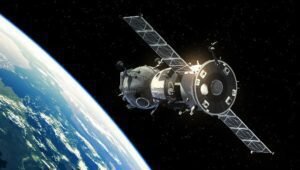China has made remarkable progress in constructing its space station, known as Tiangong, with the assembly of three modules in less than two years. This orbital habitat can accommodate three astronauts, though it is still considerably smaller than the International Space Station (ISS), which took over a decade to complete.

However, China’s plans include expanding the station with three additional modules, which could offer an essential alternative to the ISS, set to retire by the end of this decade, according to Reuters.
Despite the planned expansion, Tiangong will remain only about 40 percent of the mass of the ISS. Nevertheless, the availability of an expanding space station for research in orbit represents a significant step forward in advancing space exploration.
The China Academy of Space Technology (CAST) recently announced that Tiangong’s operational lifespan has been extended to 15 years instead of 10. This means that Tiangong may outlast the ISS by several years if all goes as planned.
Notably, NASA astronauts are restricted from visiting the new Chinese space station due to US law prohibiting collaboration between NASA and China. However, China has expressed openness to international astronauts working on its space station.
Concurrently, NASA is encouraging the private space industry in the US to develop remote space stations. While companies like Axiom Space have progressed in building segments of such a habitat, there have yet to be concrete plans to launch these modules into orbit.
In addition to China’s developments, Russia announced its intentions last year to construct its space station, which could host a crew of up to four cosmonauts. However, the credibility of this plan remains uncertain, given Russia’s recent challenges in space endeavors.
With the retirement of the ISS looming, the landscape of our permanent presence in Earth’s orbit is set to undergo significant changes. As China makes significant strides in exploring our solar system, it is becoming a prominent player on the global stage in space exploration.









